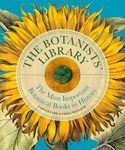![Plants and Vegetation Plants and Vegetation]()
Click to have a closer look
About this book
Contents
Biography
Related titles
Recommended titles
About this book
Plants make up 99.9 percent of the world's living matter, provide food and shelter, and control the Earth's climate. The study of plant ecology is therefore essential to understanding the biological functions and processes of the biosphere. This vibrant new introductory textbook integrates important classical themes with recent ideas, models and data. Plants and Vegetation begins with the origin of plants and their role in creating the biosphere as the context for discussing plant functional types and evolutionary patterns. The coverage continues logically through the exploration of causation with chapters, amongst others, on resources, stress, competition, predation, and mutualism. Plants and Vegetation concludes with a chapter on conservation, addressing the concern that as many as one-third of all plant species are at risk of extinction. Each chapter is enriched with striking and unusual examples of plants (e.g., stone plants, carnivorous plants) and plant habitats (e.g., isolated tropical tepui, arctic cliffs). Paul Keddy – winner of the 2007 National Wetlands Award for Research- writes in a lively and thought-provoking style which will appeal to students at all levels.
Contents
Preface
Acknowledgements
1. Plants and the origin of the biosphere
2. Description of vegetation: the search for global patterns
3. Resources
4. Stress
5. Competition
6. Disturbance
7. Herbivory
8. Positive interactions: mutualism, commensalism, and symbiosis
9. Time
10. Gradients and plant communities: description at local scales
11. Diversity
12. Conservation and management
References
Customer Reviews
Biography
Paul Keddy is the first holder of the Schlieder Endowed Chair for Environmental Studies at Southeastern Louisiana University. His current research explores the environmental factors that control plant communities, and how these factors can be manipulated to maintain and restore biological diversity. Dr Keddy has published more than a hundred scholarly papers on plant ecology, and is designated a Highly Cited Researcher in Ecology and Environment by the Institute for Scientific Information. He is the author of Wetland Ecology: Principles and Applications (winner of the Society of Wetland Scientists' Merit Award) and Competition (awarded Lawson Medal by Canadian Botanical Association and Gleason Prize by New York Botanical Garden). Dr Keddy also co-edited The World's Largest Wetlands: Ecology and Conservation and Ecological Assembly Rules: Perspectives, Advances, Retreats.




































